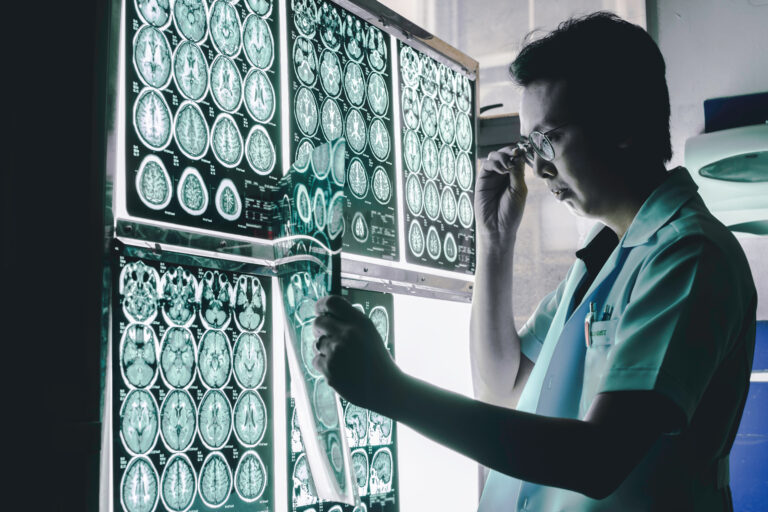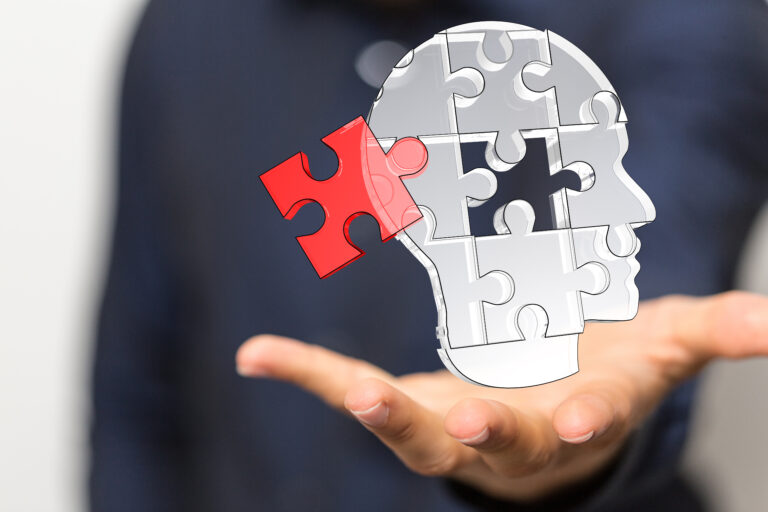A CT scan helps differentiate dementia from depression by providing detailed images of the brain’s structure, allowing doctors to identify physical changes or abnormalities that are typical of dementia but usually absent in depression. Dementia, such as Alzheimer’s disease or vascular dementia, often causes visible brain atrophy (shrinkage), enlarged ventricles, or white matter changes, which a CT scan can detect. In contrast, depression primarily affects brain function rather than structure, so CT scans of depressed patients typically show no significant brain tissue loss or structural damage.
To understand this more deeply, it’s important to recognize that dementia and depression can both cause cognitive problems like memory loss, difficulty concentrating, and slowed thinking, which sometimes makes it hard to tell them apart based on symptoms alone. Depression in older adults can mimic dementia, a condition sometimes called “pseudodementia,” where cognitive impairment is due to mood disorder rather than neurodegeneration. However, the underlying causes and brain changes differ significantly.
A CT scan (computed tomography) uses X-rays to create cross-sectional images of the brain. These images reveal the size and shape of brain structures and can show abnormalities such as:
– **Brain atrophy:** Dementia often leads to shrinkage of the brain’s cortex and hippocampus, areas critical for memory and cognition. This shrinkage is visible on CT scans as widened sulci (grooves) and enlarged ventricles (fluid-filled spaces).
– **White matter changes:** In vascular dementia, CT scans may show white matter lesions or areas of damage caused by small strokes or reduced blood flow. These appear as bright or dark spots in the brain tissue.
– **Other abnormalities:** Tumors, bleeding, or hydrocephalus (fluid buildup) can also be detected, which might explain cognitive symptoms but are unrelated to depression.
In contrast, depression-related cognitive impairment usually does not produce these structural changes. People with depression may experience brain fog, slowed thinking, and memory problems, but their CT scans generally look normal or show only minor nonspecific changes. This is because depression affects brain chemistry and function rather than causing physical brain damage. For example, depressed individuals might have difficulties with attention, executive function, and processing speed, but these do not correspond to visible brain atrophy or lesions on CT.
Clinically, doctors use CT scans to rule out dementia or other neurological causes when an older adult presents with cognitive decline. If the CT scan shows significant brain atrophy or white matter changes consistent with dementia, it supports that diagnosis. If the scan is normal, and the cognitive symptoms are accompanied by mood changes like sadness, loss of interest, or hopelessness, depression may be the more likely cause.
Additionally, cognitive testing combined with CT imaging helps differentiate the two conditions. People with depression often perform better on memory tests when given cues or prompts, whereas those with dementia typically do not improve with such assistance. This difference reflects the nature of the cognitive impairment: depression affects motivation and attention, while dementia involves actual memory loss due to brain damage.
In some cases, CT scans may reveal subtle white matter hyperintensities or vascular changes that can be associated with both depression and dementia, especially in older adults. These findings can complicate the picture, as vascular changes may contribute to both mood symptoms and cognitive decline. However, the pattern and extent of these changes, along with clinical evaluation, help guide diagnosis.
In summary, a CT scan is a valuable tool in distinguishing dementia from depression because it reveals structural brain changes typical of dementia but usually absent in depression. This imaging, combined with clinical assessment and cognitive testing, allows healthcare providers to better understand the cause of cognitive symptoms and tailor treatment accordingly. Depression-related cognitive problems may improve with mood treatment, while dementia requires different management focused on slowing progression and supporting function.





